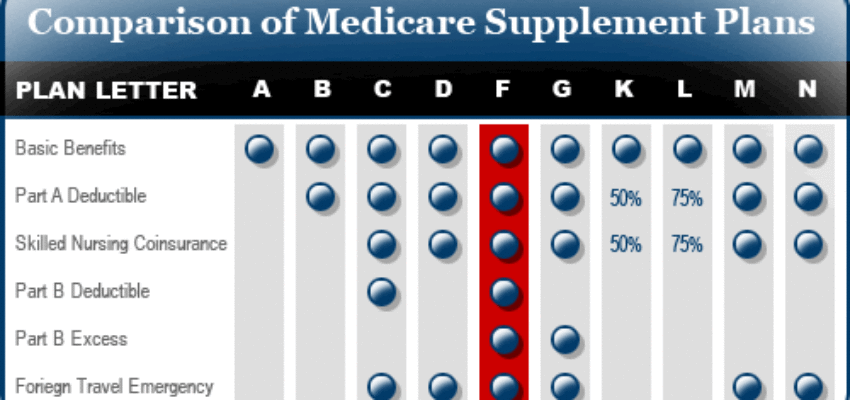Medicare Advantage Pros and Cons
If you watch T.V., you have probably heard about Medicare Part C also known as Medicare Advantage plans. Private insurance companies contract with Medicare to offer Medicare Advantage plans. These plans must provide the same level of coverage as original Medicare. If you are considering a MA/MAPD plan, you should think about the Medicare Advantage pros and cons before signing up.
Because your healthcare is a very important decision, there is a lot to consider when choosing between Original Medicare and a Medicare Advantage plan.
We will go over some of the features Medicare Advantage plans offer that may or may not provide the type of coverage you are looking for.
Medicare Advantage Pros:
Low premiums and cost shares
Many Medicare Advantage plans offer $0 plan premiums. There are plans with a premium, but they are usually quite reasonable. It is important to note; you must continue to pay your Medicare Part B premiums when you enroll in a Medicare Advantage plan. If you opt for Original Medicare and a supplement, the premium will cost you substantially more and you will also need to purchase a separate PDP (prescription drug plan). Paying for two plans can add up especially compared to a $0 MAPD plan that also provides prescription drug coverage.
Some in-network doctor’s visits have a low or no cost share with a MAPD plan. While the same visit with Original Medicare may leave you with a 20% co-insurance payment.
Medicare Advantage plans provide an annual maximum out-of-pocket expense limit. This means, when you reach the maximum, your plan pays 100% of your covered medical expenses for the rest of the year. You pay nothing. There is no maximum out-of-pocket cap with Original Medicare. In other words, there is no limit to what you could spend for medical treatment in any given year.
Comprehensive coverage
Medicare Advantage plans provide the same benefits Original Medicare, both Part A & Part B, offers. MA plans also provide additional benefits not offered by Original Medicare. Some MA plans offer vision, hearing, dental, OTC and more. MAPD plans offer comprehensive prescription drug coverage.
Beneficiaries of MAPD plans only need 1 plan and 1 card for medical, hospital and prescription coverage. This is a convenient way for beneficiaries to cover all their needs.
Several Value-added benefits:
Medicare Advantage plans provide many additional benefits above and beyond what was already mentioned. Some plans include fitness benefits like gym memberships or incentives for active lifestyles. Many plans offer rides to and from medical appointments to ensure you get the care you need. MA plans may also offer incentives for wellness visits or preventative services they may also cover chiropractic services or acupuncture. These services are not usually covered by Original Medicare.
Please note: additional benefits vary by plan and provider. Beneficiaries should check their plan’s summary of benefits to view the full range of benefits available.
Some Medicare Advantage plans operate as managed care networks or HMOs. This means beneficiaries must use in-network providers who often work together to coordinate care and can in turn save beneficiaries money. Plans also offer telehealth consultations with healthcare providers.
Medicare Advantage Cons:
Must use only in-network providers
Beneficiaries enrolled in Original Medicare or Original Medicare and a Medicare supplement plan can use any provider who accepts Medicare assignment. On the other hand, enrollees in Medicare Advantage plans are limited to seeking care with in-network providers. Any services received out-of-network can be either denied coverage or may result in a higher co-pay amount. Additionally, the cost of your care may not apply to your out-of-pocket maximum.
Additional costs
Medicare Advantage plans may include additional costs. These costs include co-pays, deductibles and co-insurance. These out-of-pocket costs can add up if you visit the doctor often. The costs depend on the plan, provider, and the services received.
See below for some situations that can raise the out-of-pocket cost for a MA plan:
- Beneficiaries may have a copayment for doctor’s visits. Co-pays also apply to some prescription drugs.
- In some instances, there may be coinsurance cost for some services. This may apply to specialist visits or DME (durable medical equipment).
- Out-of-network charges. Anytime a beneficiary visits an out-of-network provider there may be higher out-of-pocket costs (co-pays, coinsurance or the entire cost) for services received.
- Many plans have an annual deductible. Beneficiaries must meet the deductible before some medical expenses are covered. This may also include cost of specific the prescription drugs. This will depend on the tier of each medication.
Please remember; beneficiaries should be aware of the MA/MAPD plan’s summary of benefits to understand the potential costs associated with any plan.
Prior authorization
Because Medicare Advantage plans try to assure their plans are not misused, beneficiaries may need to have prior authorization for hospital stays, home health care, and some medical procedures as well as medical equipment. This may include a primary care doctor’s referral before a specialist visit is approved.
Additionally:
Because there is so much to consider, it is a good idea to seek the advice of a licensed Medicare agent when considering all your plan choices and comparing all the benefits that are important to you.


















Recent Comments